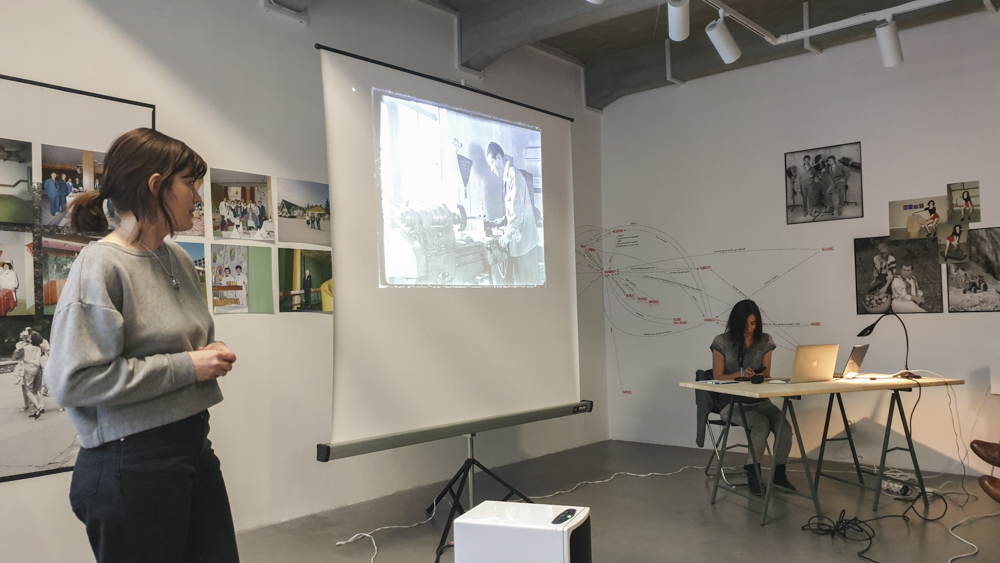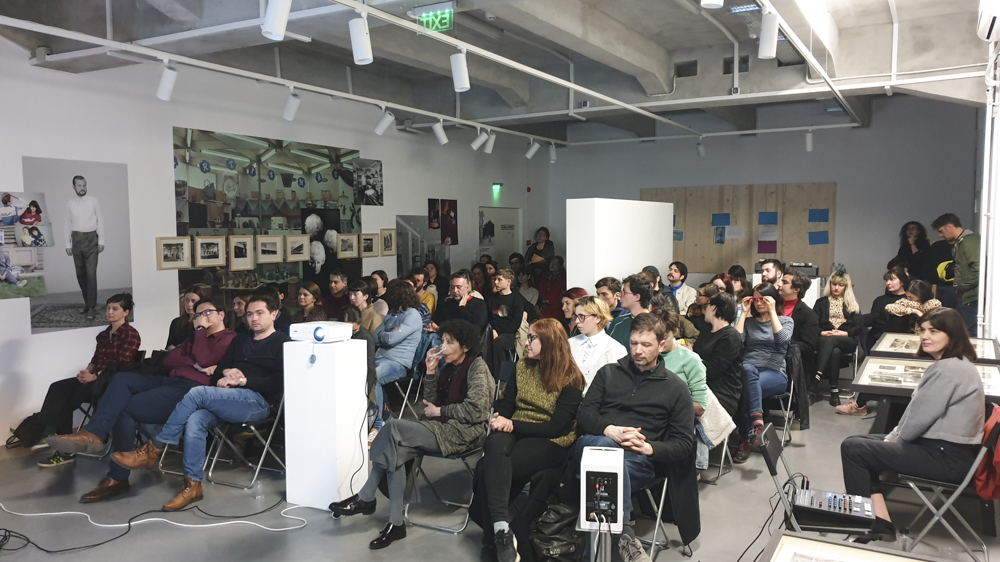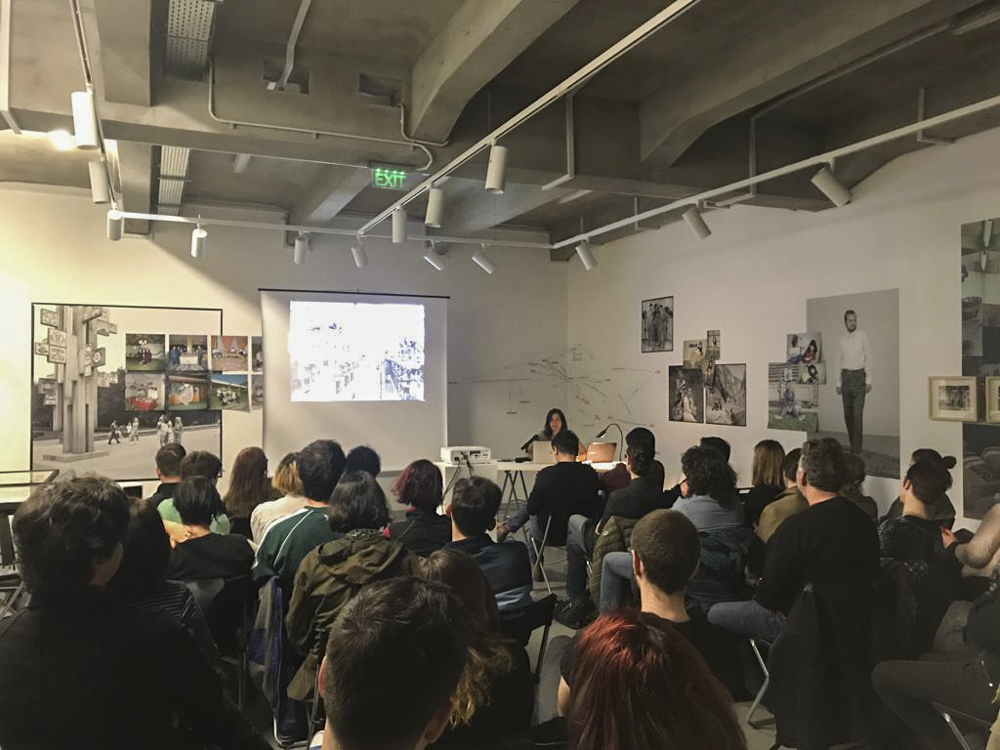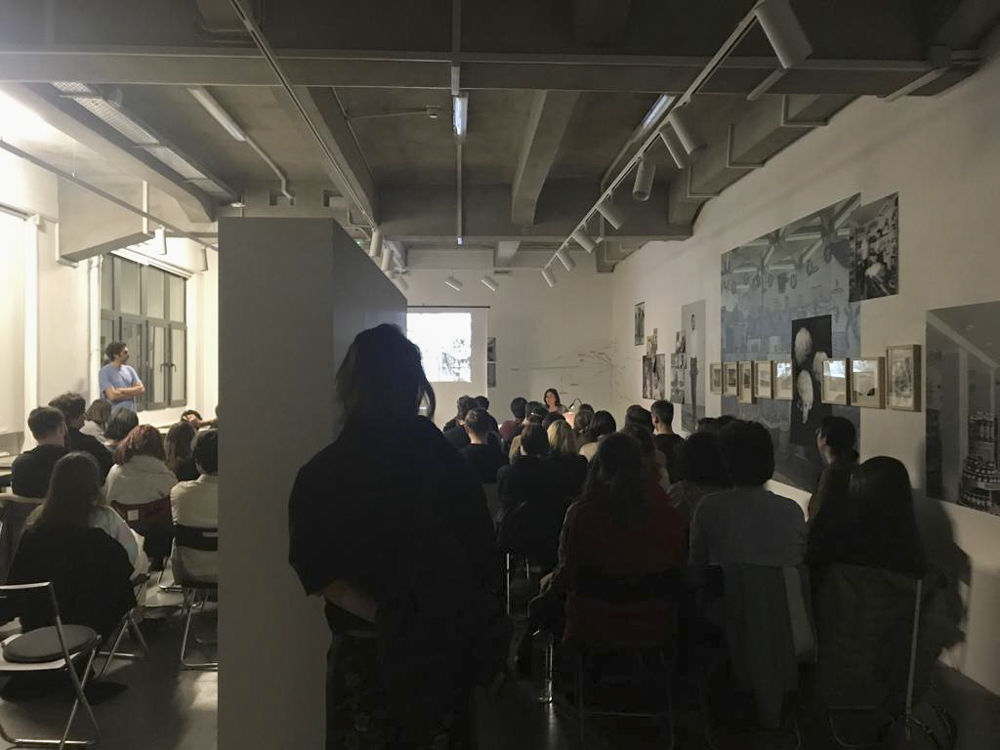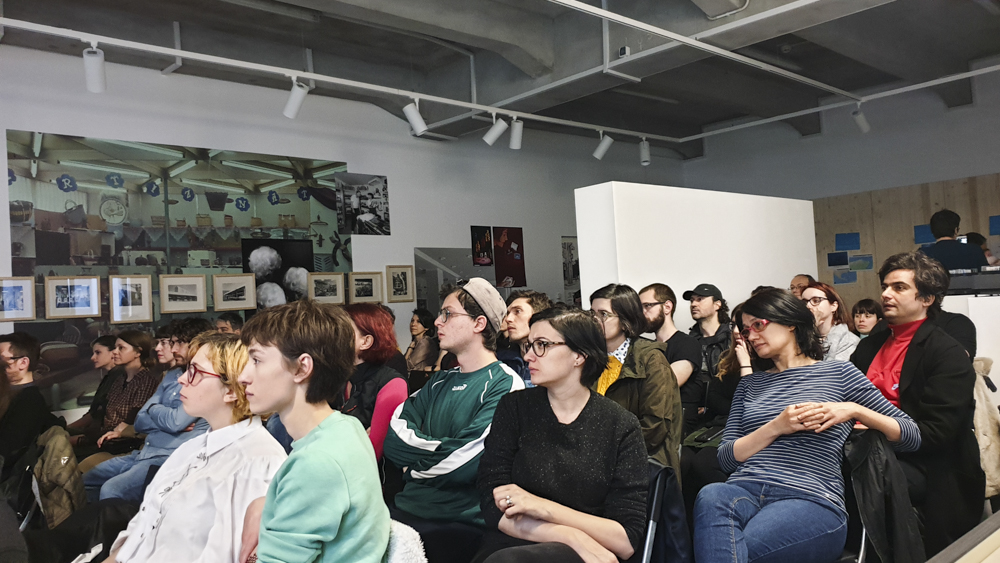April 6, 2019
Salonul de proiecte, Bucharest
A presentation by Oana Mateescu
The fourth industrial revolution looms large in the register of contemporary anxieties. From a political-economic point of view, automatization brings promise and peril in equal measure, lending itself to the utopia of a “fully automated luxury communism” but also to the apocalypse of robotic or AI takeover. Such technologically derived social hyperbolas are, of course, only the most recent installment in a much longer history of human-machine configurations. Based on a series of images from Mihai Oroveanu’s photographic archive, this talk engages in a retroactive reading of socialist human-machine relationships. Analytic attention falls on the choreography of human bodies and machines in the workplace, trying to expose (im)balances of power, knowledge and control. Can we still glean political and speculative value from the utopias of socialist industrialization? How much of that value hinges on the visuality (and hence, intelligibility) of socialist workers and their machines? Or should we, perhaps, say socialist machines and their workers?
Oana Mateescu holds a PhD in Anthropology and History from the University of Michigan. She has taught classes in anthropology and sociology at the University of Bucharest, the National University of Arts Bucharest, and University Babeș-Bolyai Cluj. Presently, she works as a researcher in the project Frontlines of Value at the University of Bergen. She is interested in the anthropology of science and technology, political economy, and historical anthropology.
This event is part of the program The Photographic Archive: Transformation of History / Memory and Research, which takes as its starting point the Mihai Oroveanu Image Collection, program initiated by the Salonul de proiecte Association.
A program funded by the Sector 1 Bucharest City Hall through Sector 1 Cultural Center, within the program „Centenar pentru toți – sesiunea 2017-2020”
A multiannual program co-funded by the Administration of the National Cultural Fund, Romania
The project does not necessarily represent the position of the Administration of the National Cultural Fund. The AFCN is not responsible for the content of the project or the manner in which the results of the project may be used. These are entirely the responsibility of the funding recipient.
With the support of: New Europe Foundation Bucharest; The National University of Arts Bucharest; CESI – The Center of Excellence in Image Studies Bucharest; The Center of Contemporary Photography Association Iași
Media partners: Radio Romania; ARTA Magazine
Sponsor: Corcova
Salonul de proiecte functions with the long-term support of the Art Encounters Foundation, Timișoara.
